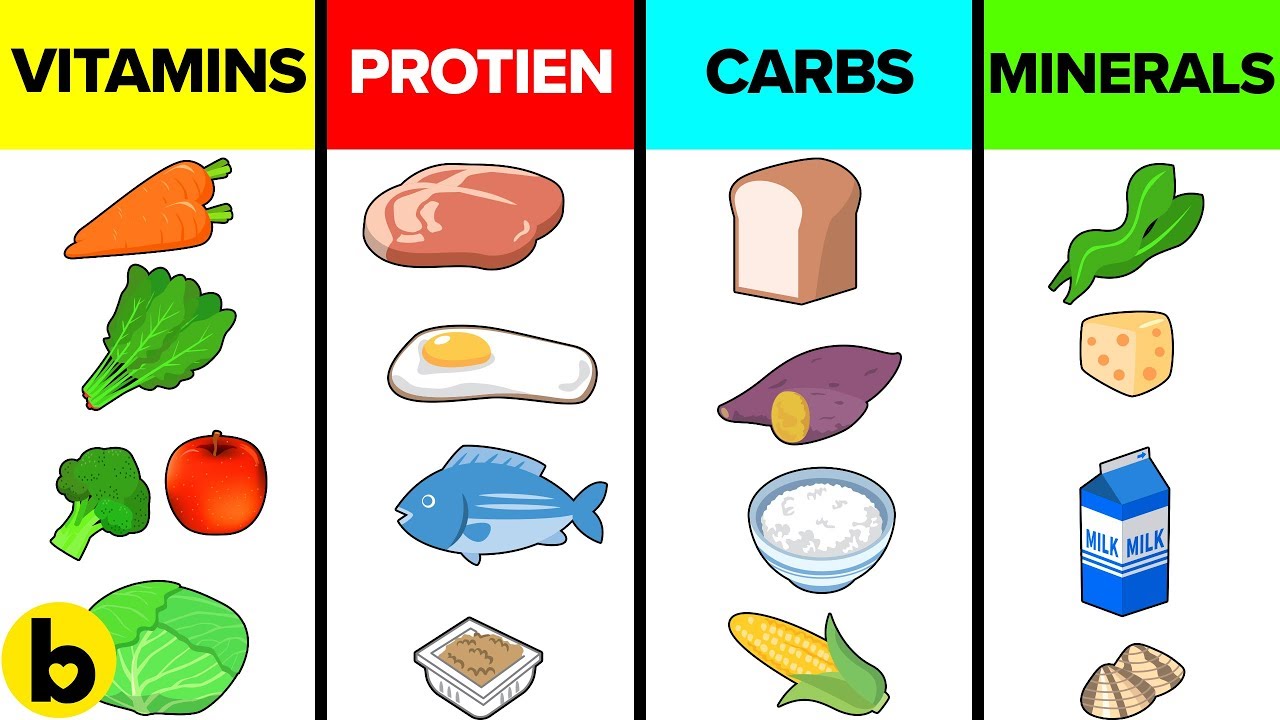The Essential Guide To The Six Classes Of Nutrients
The six classes of nutrients are fundamental to human health, playing a vital role in the proper functioning of our bodies. Understanding these nutrients can empower individuals to make better dietary choices, leading to a healthier lifestyle. Each class of nutrient serves a unique purpose, from providing energy to building and repairing tissues. This knowledge is crucial for anyone looking to achieve optimal health and well-being.
In our fast-paced world, it’s easy to overlook the importance of these nutrients. However, a balanced diet that includes all six classes is essential for maintaining energy levels, supporting immune functions, and promoting overall health. By exploring the roles and sources of these nutrients, we can better appreciate their significance and how they contribute to our daily lives.
Whether you are looking to improve your diet, manage a health condition, or simply gain a better understanding of nutrition, learning about the six classes of nutrients is an excellent starting point. This comprehensive guide will delve into each nutrient class, answering common questions and providing valuable insights into how they impact our health.
What Are the Six Classes of Nutrients?
The six classes of nutrients consist of carbohydrates, proteins, fats, vitamins, minerals, and water. Each of these plays a crucial role in supporting our body's functions and maintaining overall health.
1. Carbohydrates: What Are They and Why Do We Need Them?
Carbohydrates are the body's primary source of energy. They are found in foods such as grains, fruits, vegetables, and legumes. Carbohydrates can be classified into two categories: simple and complex.
- Simple Carbohydrates: These are quickly absorbed by the body and provide immediate energy. Examples include sugar and honey.
- Complex Carbohydrates: These take longer to digest and provide sustained energy. Examples include whole grains and starchy vegetables.
2. Proteins: How Do They Benefit Our Health?
Proteins are essential for growth, repair, and maintenance of body tissues. They are made up of amino acids, which are the building blocks of our cells. Good sources of protein include meat, fish, eggs, dairy products, and plant-based options like beans and lentils.
How Much Protein Do We Need?
The recommended daily allowance for protein varies depending on factors such as age, sex, and activity level. Generally, adults should aim for about 46-56 grams of protein per day.
3. Fats: Are They Good or Bad?
Fats are often misunderstood, but they are crucial for various bodily functions, including hormone production and nutrient absorption. There are different types of fats, including saturated, unsaturated, and trans fats.
- Saturated Fats: Typically found in animal products and some plant oils, these should be consumed in moderation.
- Unsaturated Fats: Found in foods like avocados and nuts, these are considered healthier options.
- Trans Fats: Often found in processed foods, these should be avoided as they can raise bad cholesterol levels.
What Role Do Vitamins Play in the Six Classes of Nutrients?
Vitamins are organic compounds that our bodies need in small amounts to function properly. They play vital roles in processes like energy production, immune function, and blood clotting. Vitamins are classified into two categories: water-soluble and fat-soluble.
How Can We Ensure Adequate Vitamin Intake?
Eating a diverse diet rich in fruits, vegetables, whole grains, and lean proteins can help ensure you get the necessary vitamins. Supplements may also be beneficial, but it’s essential to consult a healthcare provider before starting any new regimen.
Why Are Minerals Important in the Six Classes of Nutrients?
Minerals are inorganic substances that are crucial for various bodily functions, including bone health, fluid balance, and nerve signaling. Common minerals include calcium, potassium, iron, and magnesium.
How Can We Obtain Essential Minerals?
Minerals can be found in a variety of foods, including dairy products, leafy greens, meats, and nuts. A balanced diet typically provides adequate amounts of essential minerals.
What Is the Role of Water in Nutrition?
Water is often overlooked when discussing nutrients, but it is vital for survival. It aids in digestion, regulates body temperature, and is essential for transporting nutrients throughout the body.
How Much Water Should We Drink Daily?
While individual water needs vary, a common recommendation is to drink at least eight 8-ounce glasses of water per day, known as the "8x8 rule." However, factors such as climate, activity level, and overall health can influence hydration needs.
Conclusion: How Can We Incorporate the Six Classes of Nutrients into Our Diet?
Incorporating the six classes of nutrients into your diet is essential for maintaining optimal health. A balanced diet that includes a variety of foods from each nutrient class can help ensure you meet your nutritional needs. By understanding the roles and sources of these nutrients, you can make informed decisions about your diet and overall lifestyle.
In summary, prioritizing a diet rich in carbohydrates, proteins, fats, vitamins, minerals, and water will pave the way for a healthier and more vibrant life.
Discovering The Love Life Of Endrick: Who Is His Girlfriend?
Mastering The Art Of Communication: How To Talk To A Woman
Unveiling The Truth: Do Vanna White And Pat Sajak Have A Child Together?


